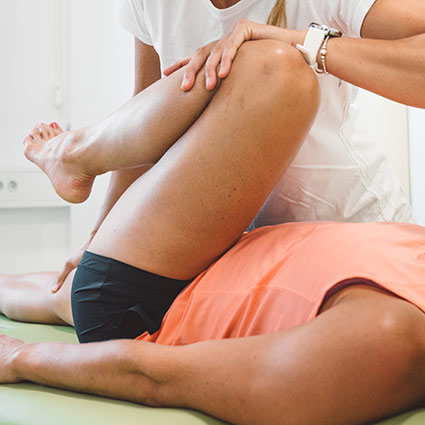Pelvic Health Physiotherapy
 Pelvic health physiotherapy is a specialized area of physiotherapy that assesses and treats both women and men with problems in and around the pelvis.
Pelvic health physiotherapy is a specialized area of physiotherapy that assesses and treats both women and men with problems in and around the pelvis.
Part of this includes the pelvic floor, which is made up of joints, ligaments, nerves, and muscles. The muscles attach to the front, back and sides of our pelvic bone and sacrum.
Why Is This Important?
Everything that happens in our pelvic floor is the basis of human need. They help control bladder and bowel function, provide support to our pelvic organs, and are involved in our sexual function. They are also part of our deep “core muscles†that work together with the back, abdominals, and diaphragm providing stability and support for a healthy back. Like any other muscles in our body, they too can become weak or tight leading to pain and dysfunction.
Weakness can contribute to urinary incontinence, prolapse, or a weak core. Tightness can cause issues such as urge incontinence, constipation, pelvic pain, or pain with intercourse, just to name a few. Sometimes this can be caused by pregnancy, childbirth, strenuous activity, low back or hip pain, or post surgery.
Did You Know?
Research has shown that the treatments carried out by a physiotherapist for pelvic floor problems are highly successful for both pelvic pain and incontinence. The Cochrane Collaboration 2010 concluded, “physiotherapists with specialized training in pelvic floor rehabilitation should be the first line of defence, before surgical consultation, for stress, urge and mixed incontinence.â€
In Europe, internal examination of the pelvic floor has been the gold standard by which treatment of the pelvic floor has been carried out for more than 30 years. Women in France and other government-funded European countries are given 10 free physiotherapy sessions after childbirth to help ‘re-educate’ their pelvic floor.
Conditions We Treat
- Stress Incontinence
- Urinary Urgency
- Urinary Frequency
- Nocturia
- Constipation
- Pushing or Straining with Bowel Movements
- Feeling of Incomplete Bowel Movements
- Irritable Bowel Syndrome
- Hemorrhoids
- Vaginal Pain
- Vulvar Pain
- Vulvodynia
- Dysmennorhea
- Endometriosis
- Tailbone Pain
- Low Back Pain
- Hip Pain
- Interstitial Cystisis
- Pudendal Neuralgia
- Dyspareunia (pain with sex)
- Genito-Pelvic Pain/Penetration Disorder
- Vaginismus
- Pain with Orgasm
- Prenatal exercise: tailored, one-on-one
- Postpartum Painful sex
- Sacroiliac Joint Dysfunction
- Pubic Symphysis Dysfunction
- Diastisis Recti
- Vaginal and/or C-section scars
- Pelvic Organ Prolapse
Genitourinary Syndrome of Menopause
- Incontinence
- Painful sex
- Pelvic Organ Prolapse
- Pelvic issues and/or pain
Frequently Asked Questions
This allows us objectively to test for strength, tightness, or timing coordination dysfunction providing valuable information for diagnosing and treatment.
Pelvic health physiotherapists can determine if they are appropriate for you and if so, how to do them correctly and when.
- Connective tissue massage, gentle trigger point release to normalize tight & painful muscles
- Strengthening exercises
- Bladder and bowel re-training
- Manual therapy techniques to joints
- Alignment and posture awareness/breathing mechanics
- Home exercise program
- Nervous system re-training (examples: for muscle coordination, reducing pain, stress management)
Feel Better at Lorne Park Integrated Health
Book your appointment today for physiotherapy! We look forward to helping you achieve a healthier version of you.
CONTACT US »
